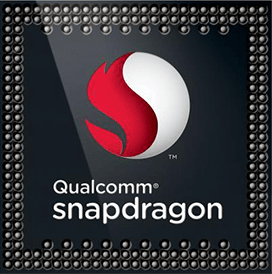
Qualcomm Snapdragon 680 4G Benchmark, Test and specs
Last updated:
The Qualcomm Snapdragon 680 4G is a 8 core processor. It can process 8 threads concurrently and is based on the 6. gen of the Qualcomm Snapdragon series. The processor was released in Q1/2022. The Qualcomm Snapdragon 680 4G scores 385 points with one CPU core in the Geekbench 5 benchmark. When using all CPU cores, the result is 1,550 points.

| Name: | Qualcomm Snapdragon 680 4G |
|---|---|
| Family: | Qualcomm Snapdragon (102) |
| CPU group: | Qualcomm Snapdragon 680 (2) |
| Architecture: | Kryo 265 |
| Segment: | Mobile |
| Generation: | 6 |
| Predecessor: | -- |
| Successor: | Qualcomm Snapdragon 685 4G |
CPU Cores and Base Frequency
The 8 CPU cores of the Qualcomm Snapdragon 680 4G clock with 2.40 GHz. The number of CPU cores and the clock frequency of the processor are largely responsible for the overall performance.
| CPU Cores / Threads: | 8 / 8 |
|---|---|
| Core architecture: | hybrid (big.LITTLE) |
| A-Core: | 4x Kryo 265 Gold |
| B-Core: | 4x Kryo 265 Silver |
| Hyperthreading / SMT: | No |
|---|---|
| Overclocking: | No |
| A-Core Frequency: | 2.40 GHz |
| B-Core Frequency: | 1.80 GHz |
Artificial Intelligence and Machine Learning
Processors with the support of artificial intelligence (AI) and machine learning (ML) can process many calculations, especially audio, image and video processing, much faster than classic processors. Algorithms for ML improve their performance the more data they have collected via software. ML tasks can be processed up to 10,000 times faster than with a classic processor.
| AI hardware: | Qualcomm AI engine |
|---|---|
| AI specifications: | Hexagon 686 @ 3.3 TOPS |
Internal Graphics
With the Qualcomm Adreno 610, the Qualcomm Snapdragon 680 4G has an build in graphic solution. It has -- SM processors, which have a total of 128 texture shaders. The iGPU not only enables games, but also significantly accelerates video playback.
| GPU name: | Qualcomm Adreno 610 |
|---|---|
| GPU frequency: | |
| GPU (Turbo): | No turbo |
| Compute units: | -- |
| Shader: | 128 |
| Hardware Raytracing: | No |
| Release date: | Q2/2019 |
| Max. displays: | 0 |
|---|---|
| Generation: | 6 |
| Direct X: | 12.1 |
| Technology: | 11 nm |
| Max. GPU Memory: | 4 GB |
| Frame Generation: | No |
Hardware codec support
Processors that have an integrated graphics can play videos faster and more efficiently. This can have a positive effect on the battery life of notebooks, for example.
| h265 / HEVC (8 bit): | Decode |
|---|---|
| h265 / HEVC (10 bit): | Decode |
| h264: | Decode / Encode |
| VP8: | Decode |
| VP9: | Decode |
| AV1: | No |
|---|---|
| AVC: | Decode |
| VC-1: | Decode |
| JPEG: | Decode / Encode |
Memory & PCIeThe Qualcomm Snapdragon 680 4G supports up to 8 GB memory in up to 2 (Dual Channel) memory channels. This results in a maximum memory bandwidth of 34.1 GB/s. |
|
| Memory type: | Memory bandwidth: |
|---|---|
| LPDDR4X-4266 | 34.1 GB/s |
| Max. Memory: | 8 GB |
| Memory channels: | 2 (Dual Channel) |
| ECC: | No |
| PCIe: | |
| PCIe Bandwidth: | -- |
Thermal ManagementWith the TDP, the processor manufacturer specifies the cooling solution required for the processor. The Qualcomm Snapdragon 680 4G has a TDP of . |
|
|---|---|
| TDP (PL1 / PBP): | |
| TDP (PL2): | -- |
| TDP up: | -- |
| TDP down: | -- |
| Tjunction max.: | -- |
Technical details
The Qualcomm Snapdragon 680 4G has a 0.00 MB large cache. The processor is manufactured in 6 nm. Modern production increases the efficiency of the processor.
| Technology: | 6 nm |
|---|---|
| Chip design: | Chiplet |
| Socket: | -- |
| L2-Cache: | -- |
| L3-Cache: | -- |
| AES-NI: | No |
| Operating systems: | Android |
| Virtualization: | None |
|---|---|
| Instruction set (ISA): | Armv8-A (64 bit) |
| ISA extensions: | -- |
| Release date: | Q1/2022 |
| Release price: | 200 $ |
| Part Number: | SM6225 |
| Documents: | Technical data sheet |
Rate this processor
Benchmark results

The benchmark results for the Qualcomm Snapdragon 680 4G have been carefully checked by us. We only publish benchmark results that have been created by us or that have been submitted by a visitor and then checked by a team member. All results are based on and fullfill our benchmark guidelines.
Screenshots:
Screenshots:
Geekbench 5, 64bit (Single-Core)
Geekbench 5 is a cross plattform benchmark that heavily uses the systems memory. A fast memory will push the result a lot. The single-core test only uses one CPU core, the amount of cores or hyperthreading ability doesn't count.

|
AMD A10-8700P
4C 4T @ 1.80 GHz |
||

|
AMD Athlon II X4 640
4C 4T @ 3.00 GHz |
||

|
Apple A8X
3C 3T @ 1.50 GHz |
||
|
|
Qualcomm Snapdragon 680 4G
8C 8T @ 2.40 GHz |
||

|
UNISOC T618
8C 8T @ 2.00 GHz |
||

|
AMD Phenom II X4 830
4C 4T @ 2.80 GHz |
||

|
AMD Athlon II X3 450
3C 3T @ 3.20 GHz |
||
Geekbench 5, 64bit (Multi-Core)
Geekbench 5 is a cross plattform benchmark that heavily uses the systems memory. A fast memory will push the result a lot. The multi-core test involves all CPU cores and taks a big advantage of hyperthreading.

|
Qualcomm Snapdragon 7c
8C 8T @ 2.40 GHz |
||

|
Intel Core i5-3380M
2C 4T @ 2.90 GHz |
||

|
Qualcomm Snapdragon 678
8C 8T @ 2.20 GHz |
||
|
|
Qualcomm Snapdragon 680 4G
8C 8T @ 2.40 GHz |
||

|
Intel Core 2 Quad Q9650
4C 4T @ 3.00 GHz |
||

|
Intel Core i3-4330T
2C 4T @ 3.00 GHz |
||

|
Intel Core i5-4288U
2C 4T @ 2.60 GHz |
||
Geekbench 6 (Single-Core)
Geekbench 6 is a benchmark for modern computers, notebooks and smartphones. What is new is an optimized utilization of newer CPU architectures, e.g. based on the big.LITTLE concept and combining CPU cores of different sizes. The single-core benchmark only evaluates the performance of the fastest CPU core, the number of CPU cores in a processor is irrelevant here.

|
Intel Core i3-2120T
2C 4T @ 2.60 GHz |
||

|
Samsung Exynos 9810
8C 8T @ 2.90 GHz |
||

|
UNISOC T700
8C 8T @ 1.80 GHz |
||
|
|
Qualcomm Snapdragon 680 4G
8C 8T @ 2.40 GHz |
||

|
Qualcomm Snapdragon 835
8C 8T @ 2.45 GHz |
||

|
Apple A8
2C 2T @ 1.50 GHz |
||

|
Intel Core i3-2370M
2C 4T @ 2.40 GHz |
||
Geekbench 6 (Multi-Core)
Geekbench 6 is a benchmark for modern computers, notebooks and smartphones. What is new is an optimized utilization of newer CPU architectures, e.g. based on the big.LITTLE concept and combining CPU cores of different sizes. The multi-core benchmark evaluates the performance of all of the processor's CPU cores. Virtual thread improvements such as AMD SMT or Intel's Hyper-Threading have a positive impact on the benchmark result.

|
Samsung Exynos 9810
8C 8T @ 2.90 GHz |
||

|
Intel Core i7-880
4C 8T @ 3.06 GHz |
||

|
Intel Core i5-4260U
2C 4T @ 2.70 GHz |
||
|
|
Qualcomm Snapdragon 680 4G
8C 8T @ 2.40 GHz |
||

|
Intel Core i7-4550U
2C 4T @ 2.60 GHz |
||

|
Intel Celeron N5095A
4C 4T @ 2.50 GHz |
||

|
Intel Celeron 6305
2C 2T @ 1.80 GHz |
||
iGPU - FP32 Performance (Single-precision GFLOPS)
The theoretical computing performance of the internal graphics unit of the processor with simple accuracy (32 bit) in GFLOPS. GFLOPS indicates how many billion floating point operations the iGPU can perform per second.

|
AMD A6-5350M
AMD Radeon HD 8450G @ 0.72 GHz |
||

|
AMD A6-5357M
AMD Radeon HD 8450G @ 0.72 GHz |
||

|
MediaTek Helio G99
ARM Mali-G57 MP2 @ 1.07 GHz |
||
|
|
Qualcomm Snapdragon 680 4G
Qualcomm Adreno 610 @ 0.00 GHz |
||

|
Qualcomm Snapdragon 665
Qualcomm Adreno 610 @ 0.00 GHz |
||

|
Qualcomm Snapdragon 662
Qualcomm Adreno 610 @ 0.00 GHz |
||

|
Qualcomm Snapdragon 460
Qualcomm Adreno 610 @ 0.00 GHz |
||
AnTuTu 9 Benchmark
The AnTuTu 9 benchmark is very well suited to measuring the performance of a smartphone. AnTuTu 9 is quite heavy on 3D graphics and can now also use the "Metal" graphics interface. In AnTuTu, memory and UX (user experience) are also tested by simulating browser and app usage. AnTuTu version 9 can compare any ARM CPU running on Android or iOS. Devices may not be directly comparable when benchmarked on different operating systems.
In the AnTuTu 9 benchmark, the single-core performance of a processor is only slightly weighted. The rating is made up of the multi-core performance of the processor, the speed of the working memory, and the performance of the internal graphics.
In the AnTuTu 9 benchmark, the single-core performance of a processor is only slightly weighted. The rating is made up of the multi-core performance of the processor, the speed of the working memory, and the performance of the internal graphics.

|
Qualcomm Snapdragon 730G
8C 8T @ 2.20 GHz |
||

|
Qualcomm Snapdragon 685 4G
8C 8T @ 2.80 GHz |
||

|
MediaTek Helio P95
8C 8T @ 2.20 GHz |
||
|
|
Qualcomm Snapdragon 680 4G
8C 8T @ 2.40 GHz |
||

|
Qualcomm Snapdragon 712
8C 8T @ 2.30 GHz |
||

|
MediaTek Helio P90
8C 8T @ 2.20 GHz |
||

|
MediaTek Helio G80
8C 8T @ 2.00 GHz |
||
Estimated results for PassMark CPU Mark
Some of the CPUs listed below have been benchmarked by CPU-monkey. However the majority of CPUs have not been tested and the results have been estimated by a CPU-monkey’s secret proprietary formula. As such they do not accurately reflect the actual Passmark CPU mark values and are not endorsed by PassMark Software Pty Ltd.

|
AMD A10-5700
4C 4T @ 4.00 GHz |
||

|
Intel Core i5-5300U
2C 4T @ 2.70 GHz |
||

|
Intel Core i5-4422E
2C 4T @ 1.80 GHz |
||
|
|
Qualcomm Snapdragon 680 4G
8C 8T @ 2.40 GHz |
||

|
Intel Core i3-7100U
2C 4T @ 2.40 GHz |
||

|
MediaTek Helio P95
8C 8T @ 2.20 GHz |
||

|
Intel Core m3-7Y32
2C 4T @ 1.10 GHz |
||
Performance for Artificial Intelligence (AI) and Machine Learning (ML)
Processors with the support of artificial intelligence (AI) and machine learning (ML) can process many calculations, especially audio, image and video processing, much faster than classic processors. The performance is given in the number (trillions) of arithmetic operations per second (TOPS).

|
Qualcomm Snapdragon 730
8C 8T @ 2.20 GHz |
||

|
Qualcomm Snapdragon 730G
8C 8T @ 2.20 GHz |
||

|
Qualcomm Snapdragon 732G
8C 8T @ 2.30 GHz |
||
|
|
Qualcomm Snapdragon 680 4G
8C 8T @ 2.40 GHz |
||

|
Qualcomm Snapdragon 480 5G
8C 8T @ 2.00 GHz |
||

|
Qualcomm Snapdragon 678
8C 8T @ 2.20 GHz |
||

|
Qualcomm Snapdragon 712
8C 8T @ 2.30 GHz |
||
Benchmarks

Geekbench 5 (SC)
2,488 entries
2,488 entries

Geekbench 5 (MC)
2,461 entries
2,461 entries

Geekbench 6 (SC)
1,755 entries
1,755 entries

Geekbench 6 (MC)
1,703 entries
1,703 entries

FP32 SP (iGPU)
2,042 entries
2,042 entries

AnTuTu 9 Benchmark
90 entries
90 entries

PassMark CPU-Mark
2,392 entries
2,392 entries

AI / ML Performance
119 entries
119 entries
Description of the processor
The Qualcomm Snapdragon 680 4G is a processor manufactured with a structure width of 6 nanometers and was launched in the first quarter of 2022. This is a mobile processor that is used almost exclusively in smartphones and tablets. It is based on the Kryo 265 architecture and can only be operated with the Android operating system.The Qualcomm Snapdragon 680 4G consists of eight processor cores arranged in a hybrid big.LITTLE core architecture. Four of the eight cores are Kryo 265 Gold performance cores that clock at up to 2.40 gigahertz and the other four cores are Kryo 265 Silver efficiency cores that clock at up to 1.80 gigahertz. Hyperthreading is not supported by the processor and you cannot overclock the Qualcomm Snapdragon 680 4G either.
The in-house Qualcomm Adreno 610 is integrated as the internal graphics unit in the Qualcomm Snapdragon 680 4G. Unfortunately, it is not known how many execution units this graphics unit has, but we were at least able to find out that it has 128 shader units. Unfortunately, the clock frequency is also not known, this is simply because Qualcomm is unfortunately very economical with the information about their graphics units. What we still know is that the Qualcomm Adreno 610 was installed for the first time in the second quarter of 2019 and that it is manufactured with a structure width of 11 nanometers. The graphics unit can use up to 4 gigabytes of the RAM built into the system as graphics memory.
The Qualcomm Snapdragon 680 4G itself is equipped with 2 memory channels and can be equipped with up to 8 gigabytes of RAM. The processor supports LPDDR4X-4266 memory, which can achieve a memory bandwidth of up to 34.1 GB/s.
Popular comparisons
back to index




